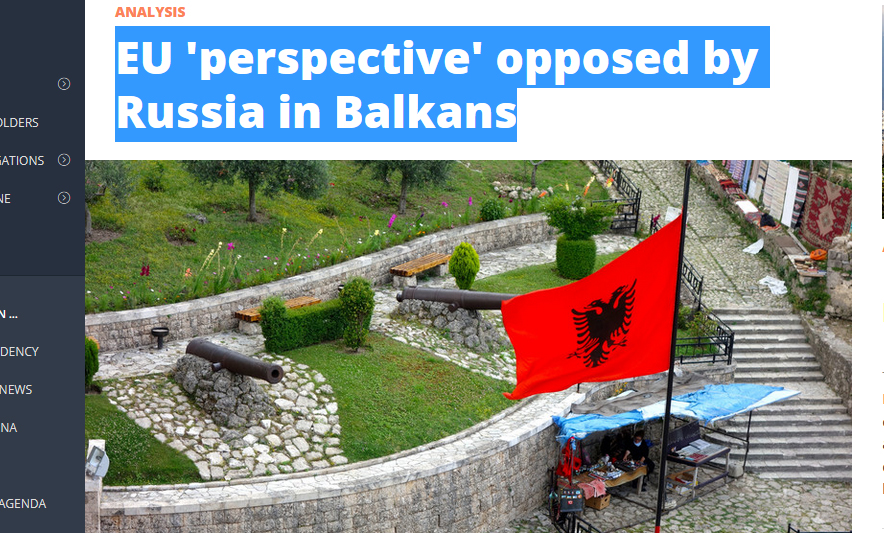 Linda Rama: Between Family, Work and Albania’s Future
Linda Rama: Between Family, Work and Albania’s Future 
The Albanian Minister for Europe and Foreign Affairs, Ditmir Bushati, said that the new reality created in the Balkans region creates more clarity for orienting more Western Balkan countries in the Euro-Atlantic space.
The Albanian Minister for Europe and Foreign Affairs, Ditmir Bushati, said that the new reality created in the Balkans region creates more clarity for orienting more Western Balkan countries in the Euro-Atlantic space.
EU Observer writes that different from the Thessaloniki summit, the efforts of the EU will face Russian interferences in a new geopolitical environment.
Full article from EU Observer,
Bushati said the West should watch out for Russian meddling in EU frontrunners Macedonia, Montenegro, and Serbia, and said Moscow was prepared to stir nationalist tensions in order to slow them down.
“Nationalism is being fuelled by third parties [Russia] whose interest might be instability rather than stability. It’s a dangerous principle which they seek to exploit,” he said.
“Russia has made more public statements on events in Macedonia than the EU and Macedonia’s closest neighbours combined. Russia’s foreign ministry maintains a close watch and is always the first to comment,” he said, referring to political clashes in Skopje last year.
Russian firm Gazprom was expanding in Serbia for the sake of “geopolitical interests”, he added.
Montenegro, which is a Nato member, but which used to be “a playground for the Russian oligarchy”, was still prone to Russian “political interference”, he said.
“Even in Albania [also a Nato member], where we thought we were immune from Russia’s interventions … there is an investigation into allegations that our political opponents received [Russian] financial support in breach of our legislation,” the minister said.
Political games aside, Russia also stands accused of trying to stage a coup in Montenegro in 2016 in an operation designed to stop it from joining Nato.
The “majority of EU states are convinced the Russian Federation was behind the failed coup”, a second EU diplomat told EUobserver.
Montenegro was “not a primary target” for Russia any more, the diplomat said, but he said that “for sure, the Russian Federation has the capability to launch other operations in the region”.
The diplomat spoke amid ever-greater Kremlin daring in its confrontation with the West, including Russia’s attempt to kill a former spy in Nato’s heartland, in the UK, using a chemical weapon, in March.
If Russia managed to stir “serious” instability in the Western Balkans that could “divide EU member states” on how to react, the EU diplomat said.
“Problems in the Western Balkans make the countries less attractive to some member states when we talk about their perspectives to join the EU,” he added.
Albania’s Bushati said Nato membership helped protect small allies from dirty tricks.
“Nato is a source of strategically vital information our small countries could not possibly collect on their own,” the minister said.
The “solidarity and support that allies showed” on the UK chemical attack, by expelling Russian spies and diplomats, showed the value of being part of the Western bloc, he added.
“This new [geopolitical] reality demands clarity about one’s orientation,” he said ahead of the EU’s Sofia meeting.
“The more countries of the Western Balkans that are locked into the Euro-Atlantic space, the more stability and peace there will be for the region and Europe as a whole,” the minister said.
Top Channel








